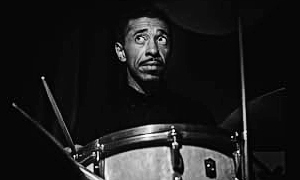Home » Jazz Articles » Book Review » Michael Brecker: Ode to a Tenor Titan
Michael Brecker: Ode to a Tenor Titan
 Ode to a Tenor Titan
Ode to a Tenor Titan Bill Milkowski
408 Pages
ISBN: # 978-1-4930-5376-6
Backbeat Books
2021
By the summer of 2005, most people in the jazz world knew that legendary tenor saxophonist Michael Brecker was suffering from a serious medical condition. He had been diagnosed with myelodysplastic syndrome (MDS), a pre-leukemia bone marrow disorder, and his wife, Susan, was desperately trying to find someone with a bone marrow match who would provide the possibility of recovery. Brecker was emaciated, and he was truly in a life-or-death situation. They were able to find a partial match, and he temporarily showed signs of recovery, but the treatment wasn't a cure. Unfortunately, he lost his battle in January 2007. With Ode to a Tenor Titan, Bill Milkowski examines Brecker's life and legacy.
Milkowski is an award-winning writer whose work has appeared in numerous major music magazines. He has also written over a thousand liner notes for recordings, and several books on music and musicians, including Keith Richards, Jaco Pastorius, and Pat Martino. Ode to a Tenor Titan is a well-researched book, which features interviews from Michael Brecker, along with many people who knew and worked with him over time.
Of course, the person who was closest to Brecker musically was his older brother, legendary trumpet player Randy Brecker. They worked together a great deal over the years, most notably in their group, Brecker Brothers. Randy wrote the foreword to Ode to a Tenor Titan, and he is featured prominently throughout the book.
The Breckers grew up in a musical home, and both started playing when they were young. Michael originally played clarinet, but he was tempted to switch to saxophone after listening to a Dave Brubeck album in his father's collection. He became fascinated with Paul Desmond's playing. Later, when Randy gave Michael a Cannonball Adderley record, as Michael recalled, "that was it! I wanted to be able to play like Cannonball, with that kind of freedom."
Once Brecker started playing saxophone, he became obsessed with practicing and learning music. He constantly listened to records and would spend hours playing. His desire for perfection, however, was sometimes too intense. He recalled taking a master class at Berklee College of Music, where the instructor told him that he was working too hard, and tried to get him to relax. "In fact, he used me as an example to his students of what not to do," Brecker said.
Brecker's search for "the perfect eighth notes," as he called them, seems admirable on some levels, but there was also a dark side that Milkowski brings out. During the '70s, Brecker started using heroin, which seemed to be the drug of choice for many of his idols. One of the things he liked about it was the ability it gave him to focus intently on practice. As saxophonist, Dave Liebman recalls, "when you played, especially when you practiced, you could really zone in. Nothing else mattered." As Liebman points out. "Michael was very dedicated to that ethos."
Brecker wasn't trapped by drugs his entire life. He managed to get clean and dedicated a lot of his energy to helping others struggling with addiction. Milkowski covers all of this, but most of the book deals with Brecker's contributions to music. Ode to a Tenor Titan provides a great deal of insight into Michael's career from his early work with the group Dreams, to his time with The Brecker Brothers, his work with Steps Ahead, and his session gigs.
Brecker sometimes drew criticism because of his session work. He recorded with numerous popular musicians during the seventies and eighties, including Paul Simon, Aerosmith, Dire Straits, Joni Mitchell, Frank Zappa, and many others. Darryl Pitt, Brecker's friend and manager, discusses how Michael's work for popular artists lowered his standing in the jazz world among a few critics. "It's because he did so much session work during the '70s on pop and rock sessions that some people don't take him seriously as a jazz artist." This, as Pitt argues, "is just foolish."
In spite of what some viewed as "pop indiscretions," Brecker went on to produce some of "the most challenging, inspired, and visionary modern jazz recordings." When he played, there was no doubt this was a major league jazz artist, and his playing was never in question. David Sanborn, who was an original member of The Brecker Brothers, tells a story of taking a solo after Michael, a mistake Sanborn said he never made again. He said it was like "the stage had been napalmed. You know there's one sad little B flat lying in the corner that I picked up."
Ode to a Tenor Titan seems to go deeper than simply another biography. Milkowski clearly has a true respect for Brecker and reminds us that this is a talented artist who should be remembered among the tenor players who inspired him.
Tags
Book Review
Kyle Simpler
Backbeat Books
Michael Brecker
Keith Richards
Jaco Pastorius
Pat Martino
randy brecker
The Brecker Brothers
Dave Brubeck
Paul Desmond
Cannonball Adderley
Dave Liebman
Dreams
Steps Ahead
Paul Simon
Joni Mitchell
Frank Zappa
David Sanborn
PREVIOUS / NEXT
Support All About Jazz
 All About Jazz has been a pillar of jazz since 1995, championing it as an art form and, more importantly, supporting the musicians who make it. Our enduring commitment has made "AAJ" one of the most culturally important websites of its kind, read by hundreds of thousands of fans, musicians and industry figures every month.
All About Jazz has been a pillar of jazz since 1995, championing it as an art form and, more importantly, supporting the musicians who make it. Our enduring commitment has made "AAJ" one of the most culturally important websites of its kind, read by hundreds of thousands of fans, musicians and industry figures every month.
























